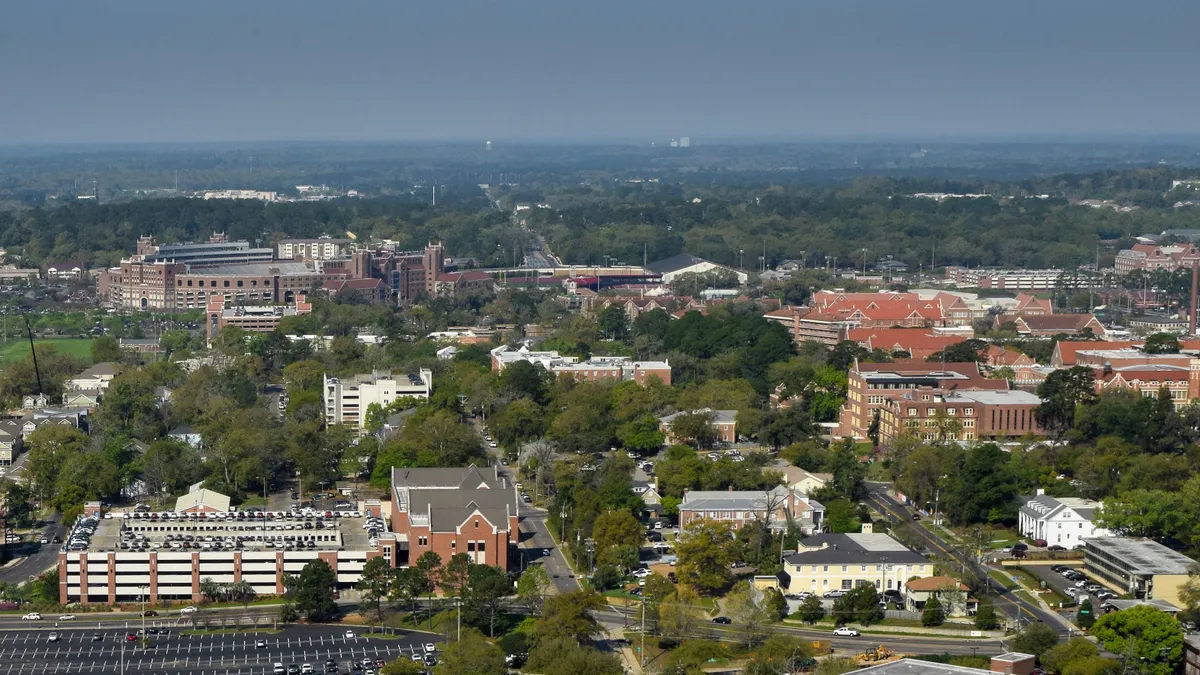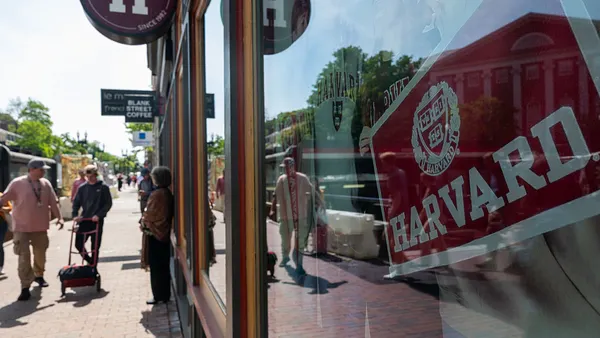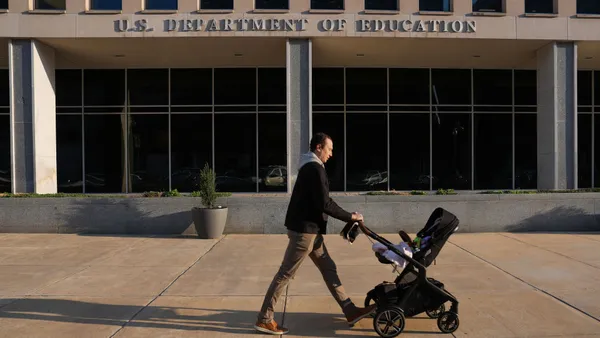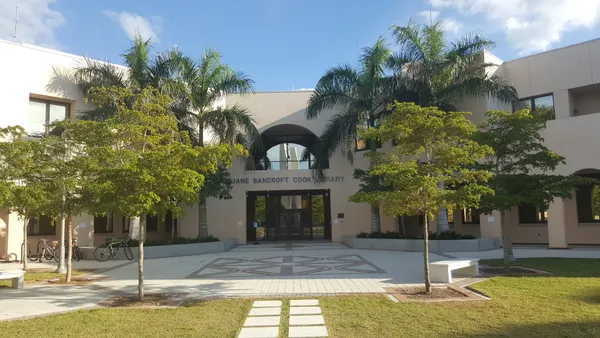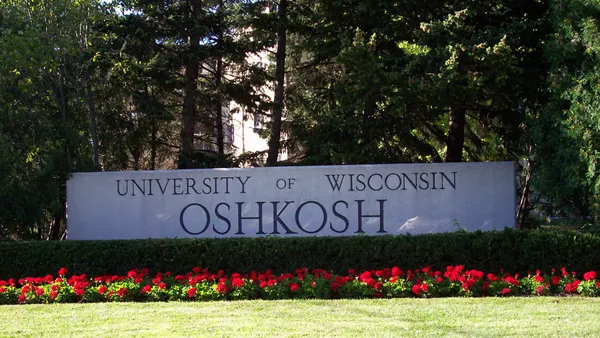Dive Brief:
- An emerging way to finance tuition, income-share agreements (ISAs) show promise for improving college access, retention and completion, but consumer protection guardrails are essential, argues a new paper from the Federal Reserve Bank of Philadelphia.
- Through ISAs, students receive financing for their programs upfront and typically agree to pay it back as a share of their income over a set period of time once their earnings reach a certain level.
- More than 40 colleges, as well as "numerous" other education providers, offer ISAs, the report notes, and interest in them is growing as the sector grapples with how to address the nation's ballooning student debt load.
Dive Insight:
Advocates of ISAs say they offer students a lower-risk alternative to certain loans, while critics argue they aren't that different from debt and don't force colleges to address their rising costs.
The debate over ISAs' role in college financing heightened earlier this year, when the U.S. Department of Education indicated it might pilot a program and Congressional Democrats responded by asking for more details on the agency's plans.
Students typically fulfill an ISA agreement by either paying the maximum amount, making the required number of payments or reaching the end of the payment period stipulated in their contract, the report notes.
Watchdog groups warn that certain elements of such contracts could render ISAs just as or more restrictive than private loans. Concerns include the potential for class action and arbitration bans and penalties for early repayment.
"Ultimately, ISAs are neither a panacea nor perilous, and the devil is in the details — as with all financial instruments," the authors write.
Their report addresses a host of questions that have been swirling around ISAs as more education providers consider them and as the industry pushes for legislation that regulates them separately from other forms of college financing, such as student loans. (Separate oversight has been a point of contention for critics of ISAs, who argue that existing protections are sufficient.)
Bipartisan legislation concerning ISAs has been introduced in the House and the Senate. States including Illinois, Indiana and California have or are considering ISA-specific legislation.
So far, colleges tend to use ISAs to address specific financing needs. The University of Utah, for instance, offers an ISA to help students avoid leaving college without a credential and Colorado Mountain College has an ISA for undocumented students, Education Dive reported earlier this year.
ISAs offered by traditional colleges tend to have longer payment windows but lower income thresholds than those used by alternative education providers, which have closer links to the job market. They tend to use ISAs to help finance the entire cost of students' attendance because those institutions often lack access to federal funding, the report notes.
The economic and regulatory landscape for ISAs is in flux, however, and if their use increases, the authors write, it will be important to consider how they work alongside traditional financing options, such as student loans. They also state that consumer protection mechanisms "similar in spirit" to what exists in areas such as antidiscrimination and fair credit reporting are "critically necessary."





